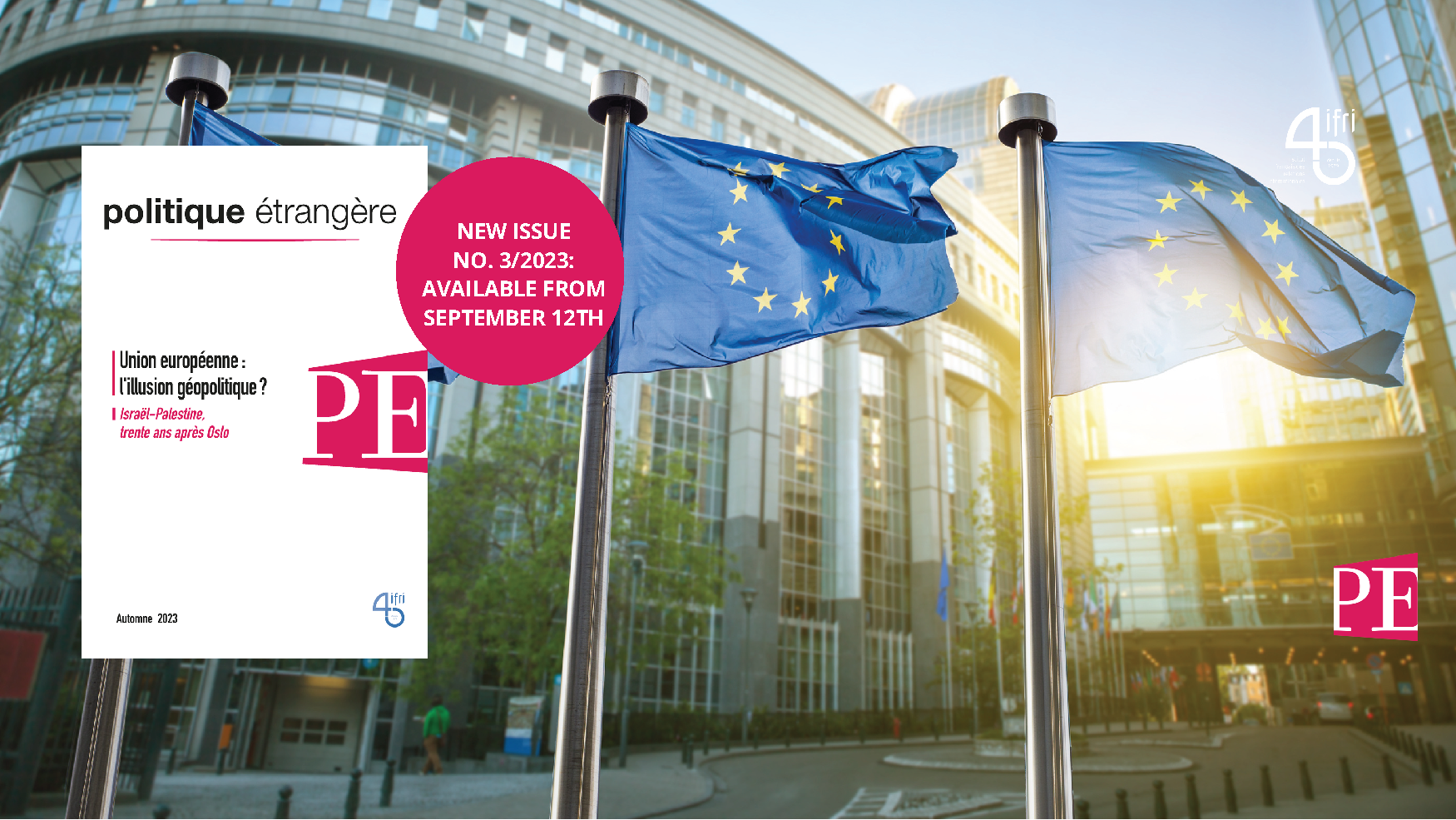European Union: A Geopolitical Illusion?
The European Union (EU) is holding firm in the face of the war in Ukraine—perhaps better than expected. But what long-term effects will the war have on European institutions and policies? The institutions will need to be changed to cope with the forthcoming expansions. The EU has certainly made progress toward common industrial and technological policies. But will this dynamic do away with a conception of strategic autonomy, encompassing both diplomacy and strategy? The European Union, which will undoubtedly be a key mover of future changes for the continent, remains largely uncertain in terms of its future configurations.

Beyond the current situation in Ukraine, the issue of migration reflects the differences and divergences of European positions. Closing borders, removing irregular migrants, exporting the management of entry into European territory: is there consensus on these solutions, and most importantly, will they help to solve the problem?
Thirty years on from Oslo, how do we explain the deadlock in the peace process? Israeli and Palestinian interpretations of the last three decades remain totally opposed: on the one side, they cite Palestinians’ inability to challenge terrorism and govern themselves; on the other side, it is Israel’s refusal to move beyond the Oslo concessions to achieve a negotiation on “final status.” In the light of these irreconcilable interpretations, the current slide toward Israeli extremism and a new Palestinian revolt offers little hope of progress.
EUROPEAN UNION: A GEOPOLITICAL ILLUSION?
Europe: Turning to the Union to Respond to Citizens, by Enrico Letta (in French only - Europe, passer à l’Union pour répondre aux citoyens)
Europe: The Emergence of a Power, by Élie Cohen
A Geopolitical Union: Is the Invasion of Ukraine Transforming Europe?, by Nathalie Tocci
European Defense: A Strategic Delusion?, by Delphine Deschaux-Dutard
Europe’s Space Sector: Caught in a Strategic Stranglehold, by Paul Wohrer (in French only - Le secteur spatial européen pris dans une tenaille stratégique)
ISRAEL-PALESTINE, THIRTY YEARS AFTER OSLO
Thirty Years on from the Oslo Accords: An Israeli Perspective, by Itamar Rabinovich (in French only - Trente ans après les accords d’Oslo : une perspective israélienne)
A Palestinian Perspective on the Oslo Accords, by Camille Mansour (in French only - Un regard palestinien sur les accords d’Oslo)
CURRENT AFFAIRS
What Place is there for Ideology in Putin’s Russia?, by Bernard Chappedelaine
The Sahel: How can we Negotiate with Jihadists?, by Marc-Antoine Pérouse de Montclos
South Pacific: The Solomon Islands, between Beijing and Washington, by Sophie Perrot
BAROMETERS
Economism in International Relations: An Unbearable Levity, by Patrick Allard
OPINION
Europe and Migration, by John O’Rourke
Migration Policies in Europe: What are the Alternatives?, by Matthieu Tardis
READING
Editor: Marc Hecker
Leveraged: The New Economics of Debt and Financial Fragility, by Moritz Schularick (ed.)
Global Financial Networked Governance: The Power of the Financial Stability Board and its Limits, by Peter Knaack
By Norbert Gaillard
This issue is available in French only : Union européenne : l'illusion géopolitique ?
Download the full analysis
This page contains only a summary of our work. If you would like to have access to all the information from our research on the subject, you can download the full version in PDF format.
European Union: A Geopolitical Illusion?




